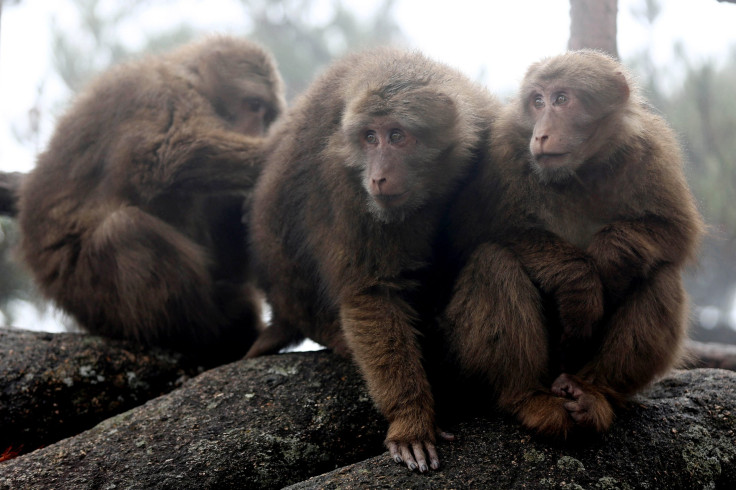Monkey B Virus: China Logs First Human Case, Death From Rare Disease
KEY POINTS
- A veterinary surgeon in China died of Monkey B or "BV" in May
- It marks the first human infection and death from the disease in China
- Monkey B is said to be "common" in macaque monkeys but "rare" in humans
China reported the country's first human case and death from a rare disease known as Monkey B. The infection is different from monkeypox, which was recently detected in a Texas resident.
Monkey B infection was reported in a 53-year-old male veterinary surgeon at an institute in Beijing that specializes in non-human primate breeding and experimental research, the Chinese Center for Disease Control and Prevention said.
He dissected two dead monkeys on March 4 and 6. The man reportedly began experiencing symptoms, including nausea, fever, vomiting and neurological issues, a month later. He visited several hospitals but he died on May 27.
Cerebrospinal fluid collected from the doctor in April suggested an alphaherpesvirus infection, and further testing of samples found evidence of Monkey B virus, also known as "B virus" or "BV." The samples taken from two of his close contacts, a doctor and a nurse, turned up negative for the virus.
"This result confirmed the first human infection case with BV in China," the agency said.
What is Monkey B virus?
The disease is different from the monkeypox virus, which was recently detected in a U.S. resident who had traveled from Nigeria. Monkey B belongs to a family of viruses called herpesviruses, while monkeypox is part of a family of viruses related to human smallpox.
Initially isolated in 1932, Monkey B virus is an alphaherpesvirus that commonly infects macaque monkeys, which often display mild or no symptoms. However, other primates such as chimpanzees and capuchin monkeys can die when they get infected, the U.S. Centers for Disease Control and Prevention (CDC) said.
Such infections in humans are "rare," the agency said, noting that there have only been 50 human infections since 1932, most of which occurred in North America. Among them, 21 died and most of them got infected either from the bite or scratch of a monkey or after coming in contact with the tissue or fluid from a monkey. To date, there has only been one reported case of human-to-human transmission.
"Hundreds of bites and scratches occur every year in monkey facilities in the United States, but people rarely get infected with B virus," the CDC said. "A study of more than 300 animal care workers showed that none had B virus infection, including the 166 workers who had possible exposures to monkeys."
The recent case of BV in China shows the possible "zoonotic threat" to people who work with monkeys.
"It is necessary to eliminate BV during the development of specific pathogen-free rhesus colonies and to strengthen surveillance in laboratory macaques and occupational workers in China," the report stated.
Zoonotic diseases and the wildlife trade
Zoonotic diseases are illnesses that can transmit from animals to humans. They are said to be "very common" in the U.S. and other parts of the world, and they often occur because of humans' close connection with animals.
In a report in February, the Congressional Research Service noted how factors such as changing land use, close human-animal contact, and both legal and illegal wildlife trade have contributed to such zoonotic diseases.
"SARS-CoV-2 is one of several zoonotic viruses that are likely linked to this trade, which brings humans and wild animals in close proximity," the report stated. "The trade increases the risk of virus transmission between hosts that might not otherwise interact in nature, leading some scientists to contend that wildlife trade can exacerbate the spread of zoonoses."
International efforts are being undertaken to address disease outbreaks and the wildlife trade. In response to COVID-19, for instance, China has banned wildlife trade for food, while Vietnam restricted some wildlife markets.
This stoked fears that the trade would move online or to the black market, prompting calls for increased monitoring and further efforts to decrease the demand for wildlife products.

© Copyright IBTimes 2025. All rights reserved.





















